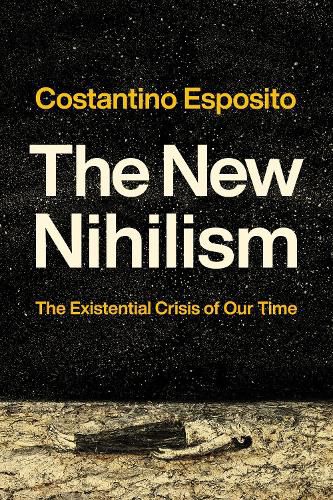Readings Newsletter
Become a Readings Member to make your shopping experience even easier.
Sign in or sign up for free!
You’re not far away from qualifying for FREE standard shipping within Australia
You’ve qualified for FREE standard shipping within Australia
The cart is loading…






In this highly engaging book, Costantino Esposito argues that nihilism is not merely the loss of the classic values of the Western tradition-rather, it presents a critical opportunity to ask pertinent, timely questions about the meaning of self and the world.
Nihilism is a problem that has troubled the culture, philosophy, and worldview of people and societies for more than a century-a problem that seemed, thanks to the advance of cultural relativism, to have become an obvious and globally shared condition. However, in recent years, the conversation around nihilism has begun to change. The questions that nihilism once declared impossible to answer-questions about the ultimate meaning of self and reality, the truth of the person and history, our desire to understand ourselves in relation to the infinite-are reemerging in today's culture and proving to be profound, reasonable, and of vital importance.
In its classical form, nihilism is the loss of values and ideals, but its modern iteration manifests as an irreducible need: more basic but far more challenging. Esposito suggests that rather than being an obstacle, nihilism can become an opportunity to search for true meaning for our experiences in the world. With philosophical rigor, he intercepts and narrates this new phenomenon, focusing on social trends, poetic voices, philosophical and scientific visions, ethical problems, and aesthetic experiences. The New Nihilism unravels and makes sense of the real stakes of the existential crisis of our time.
$9.00 standard shipping within Australia
FREE standard shipping within Australia for orders over $100.00
Express & International shipping calculated at checkout
In this highly engaging book, Costantino Esposito argues that nihilism is not merely the loss of the classic values of the Western tradition-rather, it presents a critical opportunity to ask pertinent, timely questions about the meaning of self and the world.
Nihilism is a problem that has troubled the culture, philosophy, and worldview of people and societies for more than a century-a problem that seemed, thanks to the advance of cultural relativism, to have become an obvious and globally shared condition. However, in recent years, the conversation around nihilism has begun to change. The questions that nihilism once declared impossible to answer-questions about the ultimate meaning of self and reality, the truth of the person and history, our desire to understand ourselves in relation to the infinite-are reemerging in today's culture and proving to be profound, reasonable, and of vital importance.
In its classical form, nihilism is the loss of values and ideals, but its modern iteration manifests as an irreducible need: more basic but far more challenging. Esposito suggests that rather than being an obstacle, nihilism can become an opportunity to search for true meaning for our experiences in the world. With philosophical rigor, he intercepts and narrates this new phenomenon, focusing on social trends, poetic voices, philosophical and scientific visions, ethical problems, and aesthetic experiences. The New Nihilism unravels and makes sense of the real stakes of the existential crisis of our time.